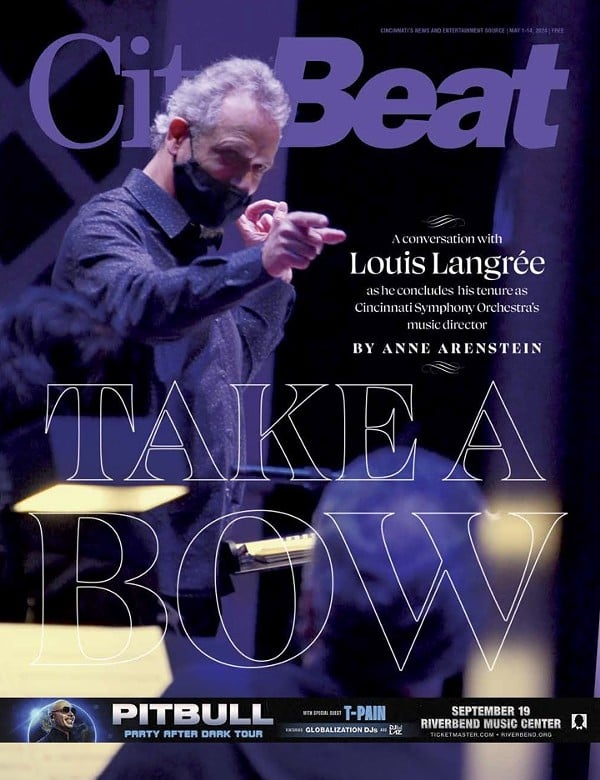One of the things that made this musical session different was the pile of handbags in the book-lined corner at Kaldi's. Trina Emig might have had her finger picks in her brown suede fringed bag (or they might have been in her banjo case); Britta Larsen brought some sheet music with hers. She carried a violin. She was a tall girl and shy, and she played a beautiful "Ashokan Farewell."
Ma Crow wore her small bag strapped around her neck like a Girl Scout sash. When she had her guitar, pick and capo out, and had fidgeted her small frame back into the middle of the chair, she tossed her bag onto the pile without a glance and started tuning. Joanie Lacy parked her purse at the bar with her husband, Robin, and carried her washboard herself. We all thought it was a nice touch that the washboard was decorated with pink sequins. But then Joanie has always been a kind of girl-singer's singer, the artist everybody likes to think they've discovered. She does a Patsy Cline song with a catch in her throat and a tear in the eye, and she nails it every time.
Ma Crow is the same way. She moved over here from Indiana years ago, and she has a different voice and a different sensibility, but the same charisma in her singing. I have always liked watching her play the "California Blues" because of the lick she starts it with on the guitar, the way she rolls her shoulders down into the beat. Behind her, I had a quick glimpse of Karen Addy adjusting the tuners on her fiddle and heard Trina Emig doing an immaculate forward roll on the banjo.
We formed a semi-circle in the corner of the room at Kaldi's facing the audience but facing each other, too. Like artful women everywhere, we did our best not to be intrusive. Instead of being littered with microphones and speakers, the corner where we sat was creamy with evening light and the dry smell of old books. Terri Templeton's champagne blonde curls fell in tendrils around her face, and Britta, who had just come back from scattering her father's ashes in New Mexico, looked downcast. Lou Anderson sat across from me and spread her wide denim skirts across the chair and leaned back, relaxed. Her eyes were bright with interest, and she helped us sing — leads as well as harmonies.
Barbara Brady, who is experimenting with various kinds of cabaret, came and sat with us for awhile. She offered a vocal of "A Poor Man's Roses (Or a Rich Man's Gold)," yet another obscure Patsy Cline recording. Barbara, who was a "Swing Was King" disc jockey on WVXU and is still a soloist in the Christ Church choir, can spot a piece of good material as well as anyone I know. She picks her stuff with the same wit and diversity she brings to her friendships.
Kat Stoppelwerth came in for the last set, singing like Bessie Smith and looking a little like Charlene on "Designing Women." It may seem odd to notice it, but I liked her jaw and the slight curve of her throat. She sang an Eric Clapton blues called "Take a Look at Yourself" in a voice full of growls. She was so good I was astounded.
It occurred to me that this is a time of great potential for women musicians, and suddenly, randomly, Cincinnati has some of the best women musicians anywhere: It's like a town that somehow got a great baseball team. I remember old friends, wonderful musicians, from my years of touring: women, like Lilly Mae Ledford, who sang at the White House with the Coon Creek Girls; Jean Ritchey from Hazard, Ky.; Hazel Dickens, a wry, intelligent singer/songwriter and friend.
I got to spend an afternoon once with Jean Shephard, one of my early idols. Janette Carter from Virginia has visited me a couple of times, and I have often played at her auditorium in Hiltons. During the times that the band and I appeared there, I met Sara Carter and her cousin Maybelle (Mother Maybelle Carter of the old Nitty Gritty Dirt Band album). There were a couple of sister acts around like the Davis Sisters from Kentucky. When their hit "The End of the World" came out, Skeeter Davis was everywhere (even on the Dick Clark show ... ask Jeff). And there were the Girls of the Golden West, but both of those sisters lived and died in Covington. After years of performing and recording they hung up their fringed cowgirl suits and settled into northern Kentucky. They probably learned to play bingo.
For this one night, drab reality sparkled with possibility again. When I cased my guitar and left, the spring air smelled like sheets hung on a clothesline and folded with lavender.
KATIE LAUR is a local musician and Main Street resident.





